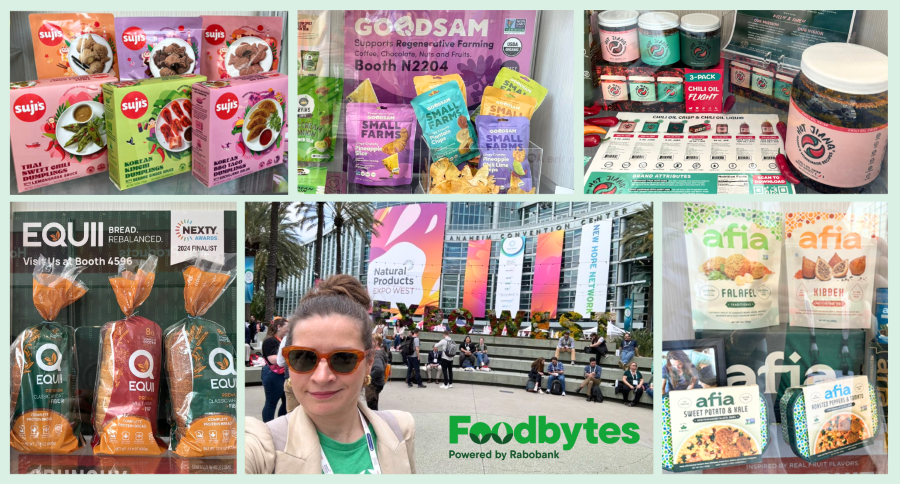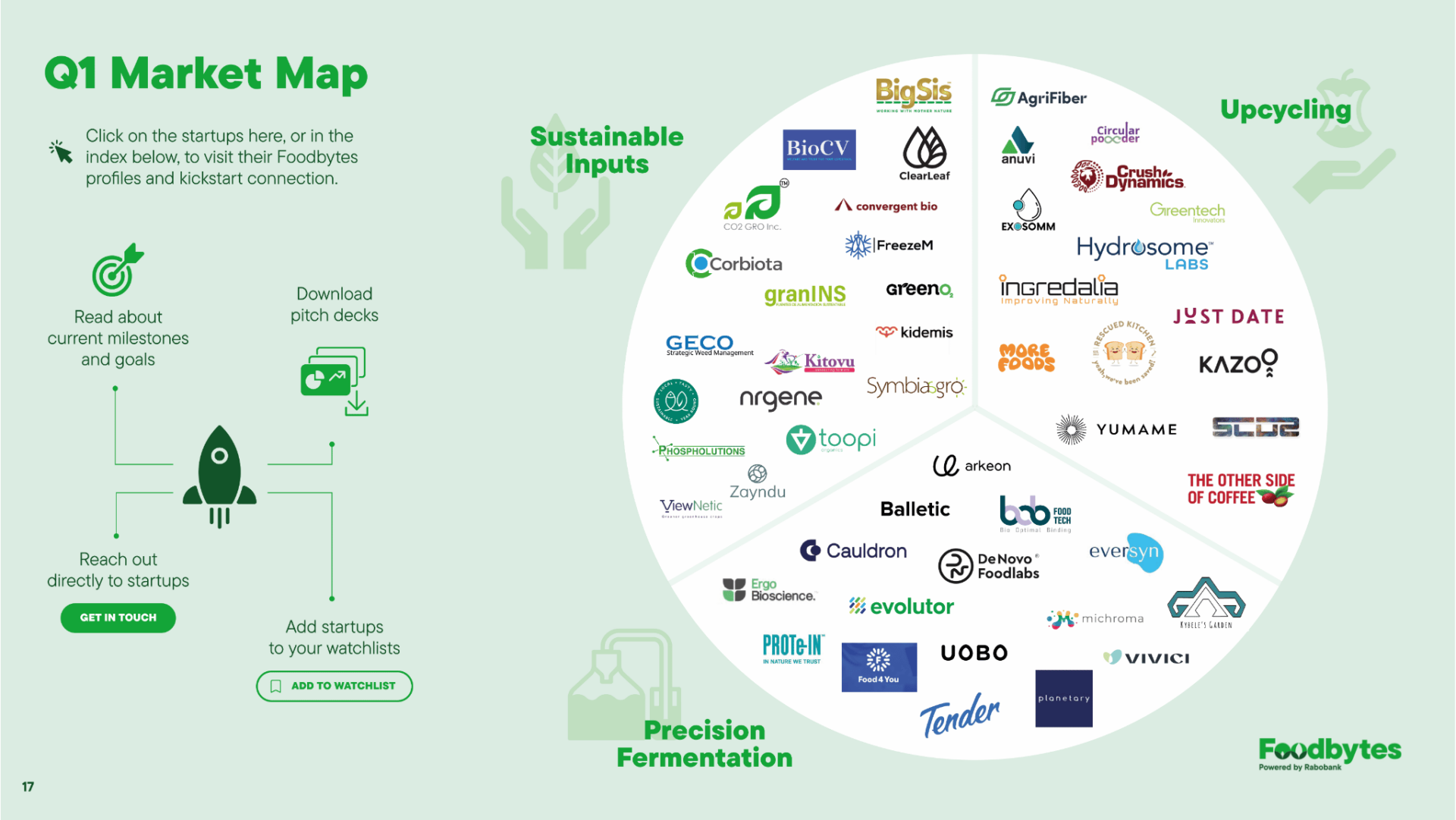
This year’s Natural Products Expo West felt like a bit of a level-setting. Despite promises, the plant-based alt meat products that dominated the aisles over the past few years have largely struggled to deliver on taste, cost, and sustainability and investment in the category is down 40% from Q4 ‘22 to Q4 ‘23.
Additionally, facing stubborn inflation, consumers – even premium product seekers – are purchasing cheaper alternatives, which has hampered new product development at large. New food product launches down 85% between ‘20 – ’23. As our ever-quippy colleague Nick Fereday put it after attending the show, “there’s lots to emulate, little to fear” for big food companies, as emerging CPG products have become familiar, accessible and less threatening.
Amid the more realistic and somber tone of the show, there were a few catapulting trends that caught our eye.
Regenerative Ag as a Differentiator
Regen ag is a holistic agricultural approach focused on improving soil health, biodiversity and ecosystem longevity through sustainable farming practices. Regen ag aims to enhance resilience, carbon sequestration and overall environmental impact, while benefiting grower ROI. Big food companies jumped in on the bandwagon bigtime, and startups competed with more data-backed regenerative practice specifics.
Foodbytes Hub Insight: “soil health” was the 3rd top searched term in the hub in the last year
- Many companies featured the Regenerative Organic Certified logo – founded by Rodale, Dr. Bronner’s and Patagonia – on their stands and products.
- General Mills’ booth showcased the importance of soil health preservation and its critical role in food production, including soil samples visitors could observe under microscopes. They featured their brands Cascadian Farms, Annie’s and Larabar as testaments to their commitment to improving soil health and increasing climate resilience to drought and flooding.
- Guinness showcased their sustainable farming goals in detail including regenerating soil, sequestering carbon, enhancing biodiversity and reducing synthetic chemical inputs.
- Kind Bars promoted its three-year pilot program that converted 500 acres of almond farms – owned by Foodbytes partner Olam Food Ingredients – to regenerative agriculture practices.
- Pasture Bird, a Purdue brand, brought agtech to the consumer foods show for likely the first time. Its mobile coop was on display, promoting a natural, scalable way of farming nutrient dense chicken for generations to come.
- New Zealand-based Lewis Road Creamery was the only small company our team came across with independent regen ag certification. The butter company upholds 10 Star Certified Values, including free-range, pasture raised, exceptional animal welfare, climate change mitigation efforts (soil focused) and environmental sustainability (100% renewable electricity and water, improvements to streams and waters, extensive native plantings).
- Meat snack company Force of Nature, with its natural color palette and slogan to “reclaim the legacy of meat,” featured packaging messaging that included “regeneratively focused, conservation minded and pasture raised.”
Global Cuisine Takes Center Stage
Emboldened by the culinary passporting of the Covid-era, the ethnic aisle is going more mainstream than ever. This year at the show, we saw even more new products from Central America, Eastern Asia, Western Africa, the Mediterranean and the Caribbean. “Whole, real-food meals dominated the North Hall,” Nina Meijers was quoted in Nick Fereday’s Expo West Reflections.
Check out our 2023 Global Flavors & Ingredient Supply Chains Report.
Foodbytes Hub Insight: “origin traceability” is a new term emerging in 2023 pitch decks
- Wild Brine, sold to Fermented Food Holdings in 2021, launched a line of global flavors to cater to a broader audience, including Vietnamese pickled vegetables and Latin American slaw.
- Dumplings abounded, from Laoban’s Mala Beef Dumplings to Mila’s delicious frozen soup dumplings. Suji’s proposed an eclectic mix of dumplings in a new colorful packaging, with flavors like Thai Sweet Chili, Korean BBQ Taco Dumplings and Korean Kimchi Dumplings.
- Wanderlish, a Bob Evans company, offered ready-made meals like chicken shawarma with turmeric rice pilaf and black garlic chicken with coconut rice and tamarind sauce.
- Afia offered a range of frozen Mediterranean products in bright, mosaic patterned pouches filled with kibbeh beef croquettes, falafel, zesty artichoke and quinoa.
- Condiments were not forgotten in this global pilgrimage: There were at least eight companies selling chili crisp-like condiments, including Fly by Jing, Hot Jiang, and Mr. Bing (this was just before the failed David Chang Chili Crisp trademark debacle took place).
